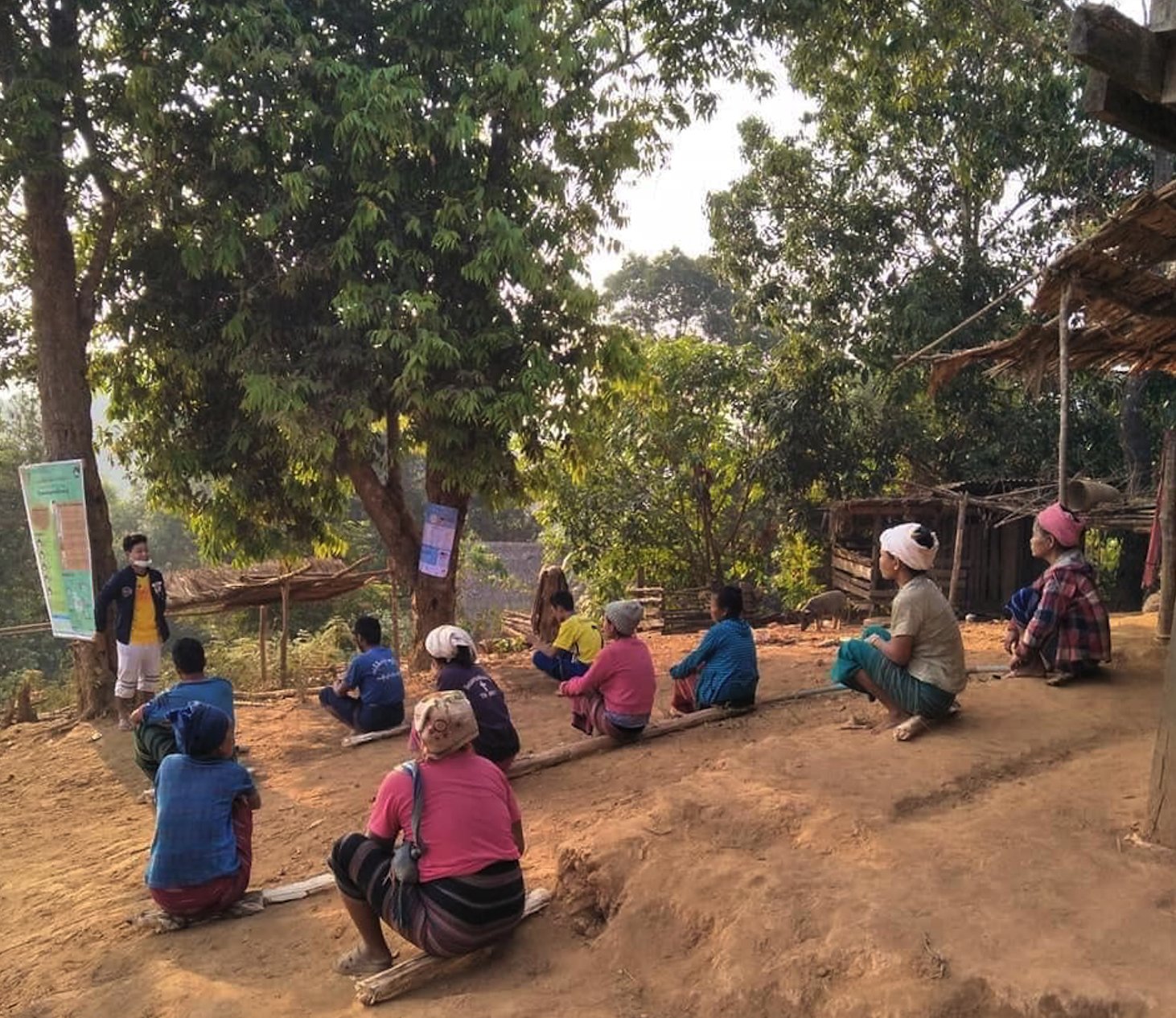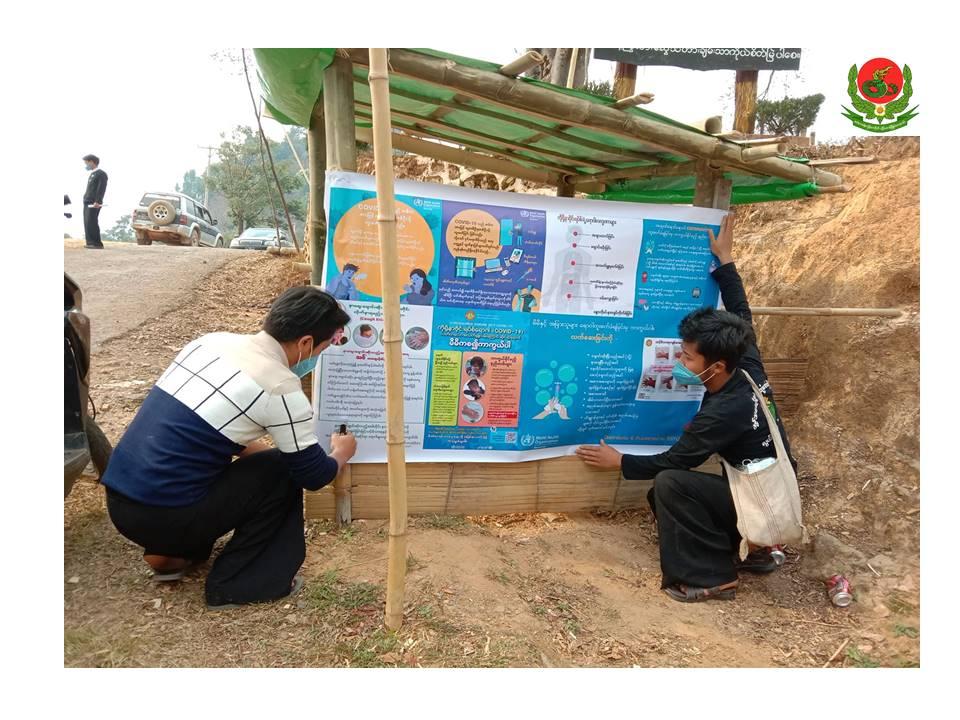
Strained and stretched thin by the impact of the Covid-19 outbreak, civil society groups in Myanmar say remote communities in ethnic areas are not receiving enough information or support to cope with the pandemic.
The government formed a committee to tackle the virus followed by the launch of a military-led committee in late March, which notably excluded the health ministry.
On April 27, the office of Myanmar’s civilian president announced another committee, this time working with ethnic armed organisations to contain the spread of Covid-19 in areas controlled by the groups.
But more practical action is needed on the ground, argue civil society organisations (CSOs), as the impact of the coronavirus scales down their services.
Reported cases of domestic violence have tripled from about four to 12 in a month amid the lockdown, said Karenni National Women’s Organization (KNWO) chairperson Mie Mie, whose staff have postponed activities and now work from home.
However, they have kept open a shelter providing accommodation, food, hygiene items and counselling, and, although at full capacity, it is currently run by a reduced number of staff, said Mie Mie.
“Women need a safe space to escape this environment,” she said. “Our safe house team is available to meet their needs.”
The KNWO distributes dry foods, hand sanitizer, clothes, first aid kits and hygiene materials from the shelter and shares information on the virus in seven townships of Karenni capital Loikaw.
The group usually helps victims of domestic violence and sexual abuse with legal aid, though, with the reduction of these services, Mie Mie fears young women and girls will have less protection.
“If they cannot report their cases to service providers, they will need the support of KNWO,” she said.
In response to the virus, the group has also reached out to rural communities, filling knowledge gaps with informative videos in the Karenni language.
Based in northern Shan state, the Ta’ang Students and Youth Union (TSYU) was forced to suspend some services last month because of Covid-19. Among them, a landmine risk education programme, the documentation of human rights violations, and a facility to help locals access essential needs such as water and electricity.
On March 23 the group stopped all meetings, training, workshops, consultations, and projects until May 19, but it continues to share information and personal protective equipment to 18 townships in northern and southern Shan state.
TSYU joint secretary 1 Lway Poe Jay said that while the health ministry releases statements online, parts of northern Shan state were not well informed about Covid-19.
“They need to go to communities who do not have Internet so they can also have information,” she said.
Even in the more connected regions of Yangon and Bago, the public lacks an understanding of the virus, according to a survey from March published by the health ministry.
Only about half of the 597 respondents understood that frequent hand washing and avoiding crowds could help prevent the spread of the disease and 87 percent felt they knew little about Covid-19.
The TSYU says migrant workers returning from Thailand, China, Cambodia, and Laos must be told about the proper quarantine procedures to take, including reporting to the village head.
The fallout of the coronavirus has caused market closures and wiped out job opportunities for food vendors, day labourers, and others; Lway Poe Jay said she was worried about those who have not yet been supported by the Myanmar government.
For the Human Rights Foundation of Monland (HURFOM), the spread of Covid-19 has been emotionally challenging for members and their families. Beginning early last month, the organization began adjusting their external activities and instructed all staff to work from home.
Mon state has so far had just one of the 155 confirmed infections nationwide, a 24-year-old woman who had recently returned from Thailand. She has recovered from the virus, according to the health ministry.
HURFOM programme director Aue Mon said their area lacks basic health care knowledge, infrastructure and intensive care capacity. The reason that health systems have been weakened in ethnic areas is because of long-standing conflict, he said.
He is concerned about the lack of adequate response in Mon state where he claims the government is inactive. Aung Naing, deputy speaker at the state parliament, did not respond to a request for comment.
“The townships, village administrative committees should be raising awareness and local funds for village responses,” said Aue Mon. “The biggest problem is in IDP [internally displaced person] areas, which are harder to access, especially in zones under mixed control.”
The HURFOM has been organizing food distribution and basic goods to eight villages in IDP areas. But it wants the government to work more closely with civil society and volunteers on the ground, said Aue Mon.
“The government forces are doing their own thing and they do not seem organized,” he said. “The emergency relief on the front lines is emotionally strained.”
Despite calls for a global ceasefire by the United Nations Secretary-General António Guterres, rights group say that attacks have increased in ethnic areas, particularly in Rakhine and Chin states.
With existing conflicts exasperating the pressure of Covid-19, CSOs have been forced to reconsider the scope and feasibility of their operations, but they say social services are more needed now than ever—and they remain determined to provide them.


